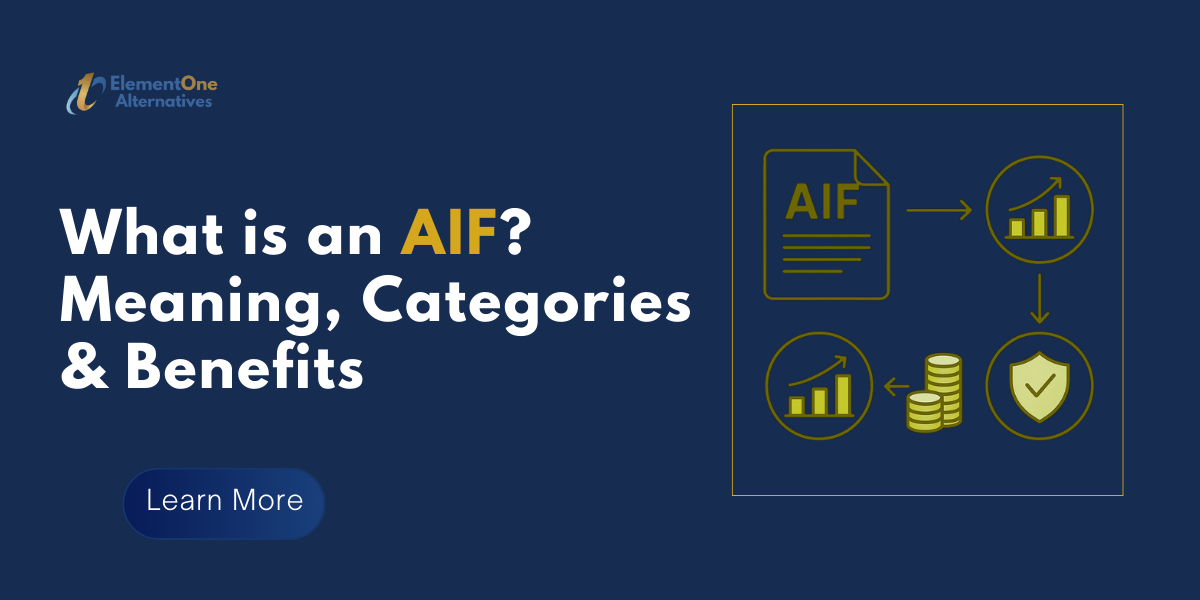In today’s evolving investment landscape, investors are constantly seeking opportunities beyond traditional options like stocks, bonds, and mutual funds. One such option gaining popularity in India is the Alternative Investment Fund (AIF). But what is an AIF, and why should investors consider it as part of their portfolio? Let’s explore.
What is an AIF?
An Alternative Investment Fund (AIF) is a privately pooled investment vehicle that collects funds from investors—whether Indian or foreign—with the purpose of investing in accordance with a defined investment policy. Unlike mutual funds, which are highly regulated and retail-focused, AIFs are designed for high-net-worth individuals (HNIs), ultra-high-net-worth individuals (UHNIs), and institutional investors who are looking for diversification and potentially higher returns.
AIFs are regulated by the Securities and Exchange Board of India (SEBI) under the SEBI (Alternative Investment Funds) Regulations, 2012.
Categories of AIFs in India
SEBI classifies AIFs into three main categories, each catering to different types of investments and risk appetites:
1. Category I AIFs
These funds invest in sectors that are considered socially or economically beneficial, such as:
-
Infrastructure projects
-
Startups
-
Small and medium enterprises (SMEs)
-
Social ventures
Why choose them? They offer long-term growth potential while contributing to economic development.
2. Category II AIFs
These are funds that do not fall into Category I or III. They include:
-
Private equity funds
-
Debt funds
-
Fund of funds
Why choose them? They provide flexibility with moderate risk and stable return opportunities.
3. Category III AIFs
These funds use complex and diverse strategies, including leverage, to generate returns. They include:
-
Hedge funds
-
PIPE (Private Investment in Public Equity) funds
Why choose them? They are designed for investors seeking short-term gains, though they come with higher risk.
Benefits of Investing in AIFs
Investing in AIFs offers several unique advantages compared to traditional investment options:
-
Portfolio Diversification: Exposure to private equity, venture capital, and other non-traditional assets.
-
Higher Return Potential: Opportunities to invest in early-stage companies, special situations, or alternative strategies.
-
Professional Management: AIFs are managed by seasoned fund managers with specialized expertise.
-
Access to Exclusive Opportunities: Investments often not available through public markets or retail mutual funds.
Who Should Invest in AIFs?
AIFs are best suited for:
-
High-net-worth individuals seeking portfolio diversification.
-
Investors with long-term investment horizons.
-
Those comfortable with higher risk for potentially higher returns.
-
Individuals looking to participate in alternative asset classes like private equity, real estate, or hedge funds.
Conclusion
So, what is an AIF? In simple terms, it’s a regulated investment structure designed to pool capital from sophisticated investors and channel it into alternative strategies for growth and diversification. While not suitable for every investor, AIFs can be an excellent choice for those with higher risk tolerance and long-term wealth-building goals.
As the Indian investment ecosystem matures, Alternative Investment Funds are expected to play a pivotal role in shaping the future of wealth management.
Keep reading and supporting ElementOne Alternatives!
Disclaimer: This information is provided solely for informational purposes and has been gathered from various online sources. ElementOne does not endorse or recommend any products or services. Please verify all details before making any decisions.





